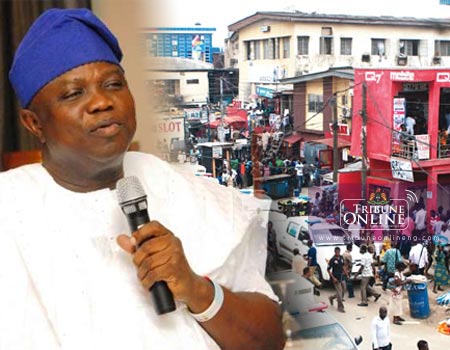After a thorough reflection, he had some salient questions to ask himself. Was Lagos, as he met it, in sync with other cities such as London, Tokyo, New York, and Paris to mention but a few in terms of cleanliness to be called a mega city? The answer was a resounding: “No!” The other was to ask himself if anything could be done, to re-invent the city, being the 5th largest economy in Africa and hoping to be the third, to be at par with the afore-mentioned cities and even Kigali, the capital of Rwanda regarded by renowned environmentalists as the cleanest on the continent? The answer was a convincing “yes!” But that was not all.
Considering the enormous financial resources that would be needed to achieve what he had in mind, did the government have the wherewithal to actualise his dream for a master-class state of cleanliness in the megalopolis? Again, the bitter answer was a “no.” The bitter truth was that, with the then looming economic recession and other competing needs of the state, other sectors would suffer should all the funds available to the government be channeled to waste management alone. So, the pertinent question was what could be done?
Having understudied the modern, technologically-driven waste-to-wealth methods adopted by other cities such as Singapore, London and Washington DC he discovered some astonishing results. One is that Lagos generates the largest mass of the combined domestic and industrial wastes in the world! Estimated at about 13,000 tons per day, excluding that from the suburbs, compared to that of New York put at 10,000 tons and respectively on daily basis, it meant that finding a long lasting solution to the environmental challenges would not be a one-off approach. It has to be all-encompassing. It was against this backdrop that governor Ambode sent a holistic, Cleaner Lagos Initiative (CLI) Bill to the Lagos State House of Assembly for consideration. And with a painstaking look at all the facets enunciated in the bill, the House in its wisdom decided to pass it into law. The honourable members knew, like the governor did, that the government needed to shop for a competent, resourceful, well-heeled and world class waste management company to drive the process that would ensure a cleaner, safer and healthier Lagos for the next 25 years.
Besides, ingrained in the law are the features that guarantee a more proactive and people-involving process. This is aimed to prevent health hazards, turn waste into wealth and generate mass youth employment. The law also cleverly separates domestic from industrial type, unlike it was in the past.
With the law intact, a critical look at the process exposed the financial malpractices and corruption that had characterized the Private Sector Participation, PSP. For instance, when the government asked the 3,000 people engaged by it to come forward for verification only 700 of them showed up for it!
Even at that, some presented equipment with PSP label A pasted after which they removed such and others brought theirs with the same number! Worse still, most of the PSP operators lack the funding necessary to meet with the new demands for a cleaner Lagos. This rather sad and sordid scenario for a system meant to engender a healthier state informed the decision to go for Visionscope Sanitation Solutions (VSS) Ltd.
With the proud pedigree of an experienced world-renowned waste management system at its disposal the company brought in 1,000 new, green trucks. Unlike PSP that paid its workers N12,000 monthly salary each, without insurance or any pension benefit, VSS will employ 27,000 workers with a monthly salary at N27,000 each. What more? Each will enjoy both insurance and pension benefits. While the PSP will focus on the suburb areas such as Ayobo, Epe, Badagary, Meiran and Iyana Ipaja, VSS will deploy its managerial capacity within the city.
In addition, there will be 10 sweepers in each of the 3,950 wards, having similar modern cleaning equipment and kits. They will be involved in the fumigation of all the nooks and corners, canals and gutters. The implication of this new approach is that vectors of different diseases such as mosquitoes that cause malaria and rats that cause lassa fever would be drastically reduced.
Also, with 10,000 bins strategically placed at various streets across the state, combined with a sustained public awareness the residents will no longer have excuse for dumping refuse indiscriminately. As usual with slow attitudinal change to new policies, there are obstacles to be overcome.
As evident so far, Governor Ambode’s unique, meticulous administrative style is to institute and bring to bear pragmatic policies to solve such challenges. It would be recalled that soon after he took over the mantle of political leadership, LASTMA and some few others seemed to be in chaos. But he used his managerial ingenuity to overcome them.
It has been observed that the same forces that were at work to sabotage the administration’s efforts to re-invent leadership modus operandi have cashed in on the period of planning and take off of CLI to frustrate it with all manner of antics. But we are fully aware that there is no gain without pain and we cannot make omelette without breaking eggs. The full assurance is hereby being given that all the loopholes in the sanitation process have been plugged and within the next few months they will witness a cleaner Lagos that would be a pride not only to Lagosians and Nigerians but the entire African continent.
- Ajanaku is the Senior Special Assistant (SSA) to Governor Ambode on Media and Strategy.






